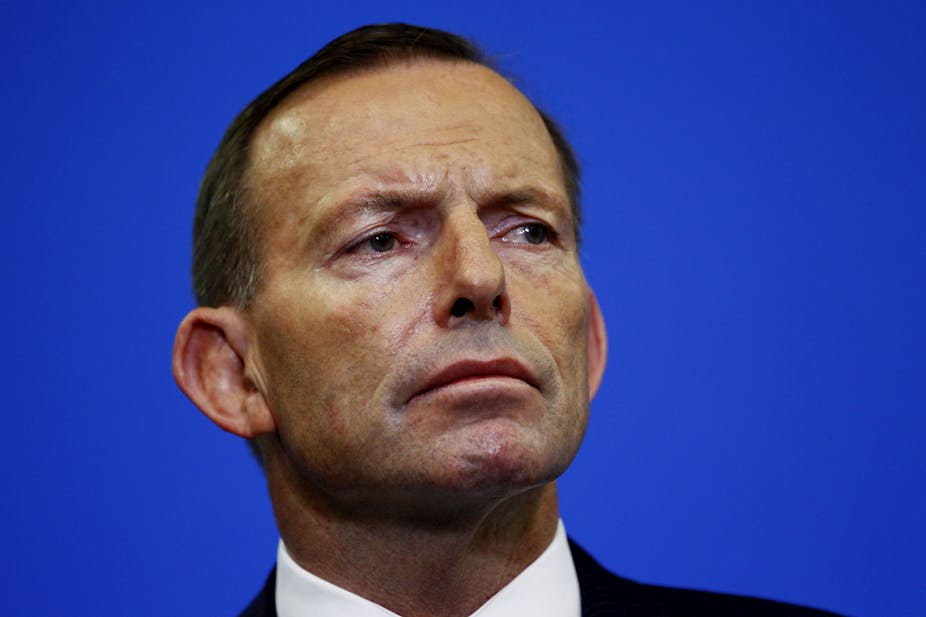Tony Abbott has reaffirmed that the government’s aim is “always to get taxes down” in a speech also saying that the May 12 budget will offset all new spending with “responsible and fair” savings.
A day after former treasurer Peter Costello blasted the government over tax, highlighting the burden of bracket creep and the calls in the current debate for some hikes in taxes, Abbott told a business audience that “we have no plans to increase taxes on superannuation and we will honour our commitment not to make any adverse or unexpected changes to superannuation during this term.
"Our goal is always to get taxes down, our constant objective is taxes that are lower, simpler and fairer.”
But in his reference to superannuation, which is being much talked about in the current debate, he did not rule out the government proposing changes in the tax package the Coalition takes to next year’s election.
Abbott confirmed that the earlier planned July 1 general company tax cut, that was coupled with an offsetting levy on the biggest companies to pay for the now abandoned paid parental leave scheme, would not go ahead.
The promised tax cut for small business “will be more than paid for” by not proceeding with the PPL scheme, he said. The budget would “have measures to cut small businesses’ tax bills in ways that will stimulate investment, boost productivity, generate new jobs and make existing jobs more secure”.
The jobs and small business package and the child care package would the centrepiece of the government’s second budget, which would be “responsible, measured and fair”.
Abbott said the budget would show that the deficit would decline every year. “Each year will bring us closer to a surplus – a surplus that means that debt will actually start to reduce rather than simply grow at a slower pace.” There was no mention of any date for a return to surplus.
The Prime Minister said the planned initiative on child care would be contingent on savings to pay for it.
The budget in general would see “no new spending that’s not offset against savings” and “there will be no business new spending that’s not directed to making our economy stronger”.
“Our child care measures will boost participation, making our economy stronger, our tax cuts for small business will boost confidence and cut costs, making our economy stronger. Our infrastructure spending will save time and make it easier to do business.”
The government would not be just getting spending down – it would be continuing to redirect spending towards measures that clearly strengthened the economy.
Repeating his frequent reassurance that the government’s second budget would not be a repeat of its harsh first one, Abbott said: “Our aim in this budget is to strengthen the Commonwealth budget in ways that don’t damage the family budget”.
Abbott attacked the Victorian government for refusing to go ahead with the East West link saying it was “trashing the state’s economic reputation. It’s just decided to spend half a billion dollars not to build a road”.
The Prime Minister’s budget overview came as Westpac registered a fall in consumer sentiment in April. Westpac’s chief economist Bill Evans said: “We would have preferred to have seen some upward momentum in the index going into the important Commonwealth budget”.

